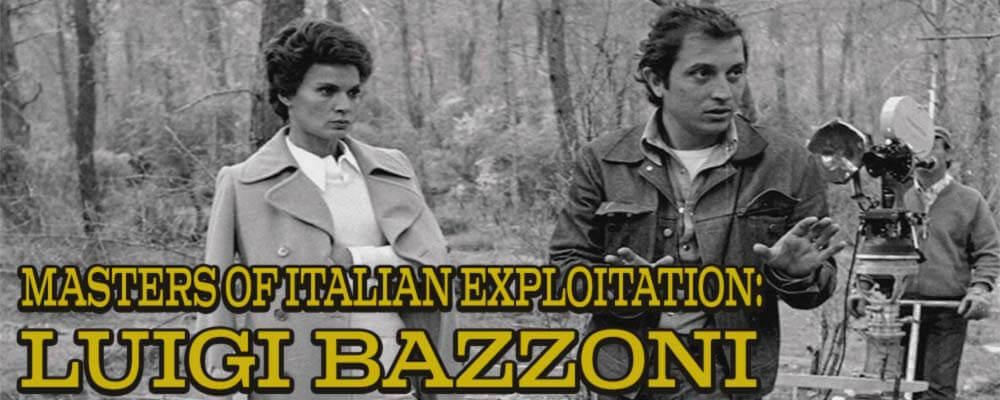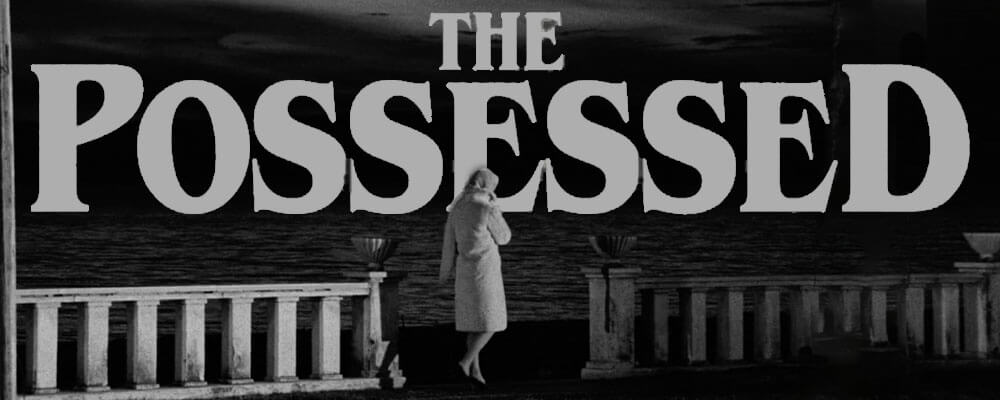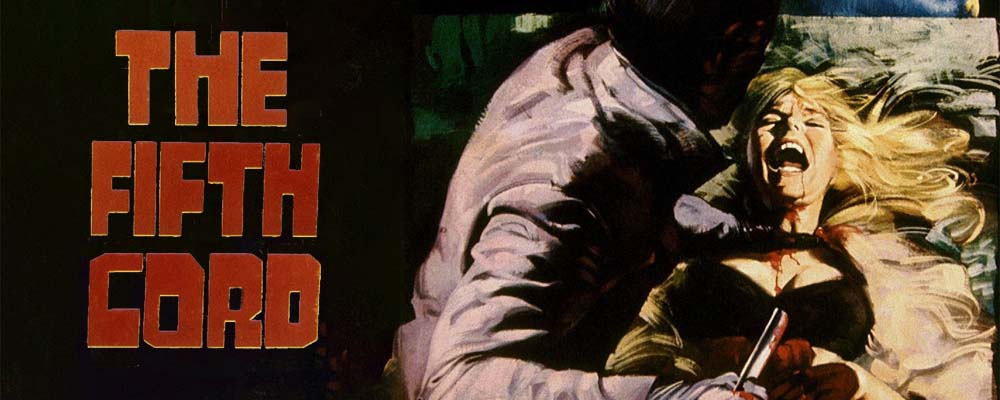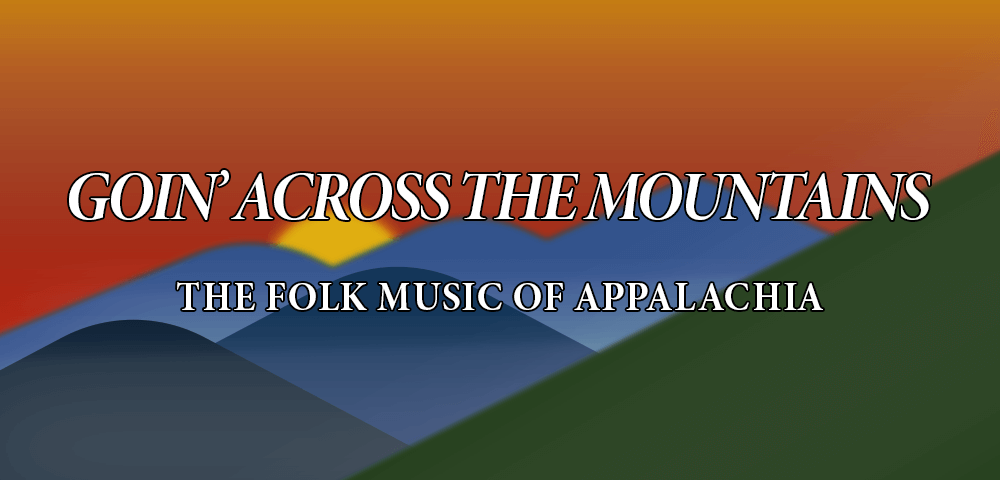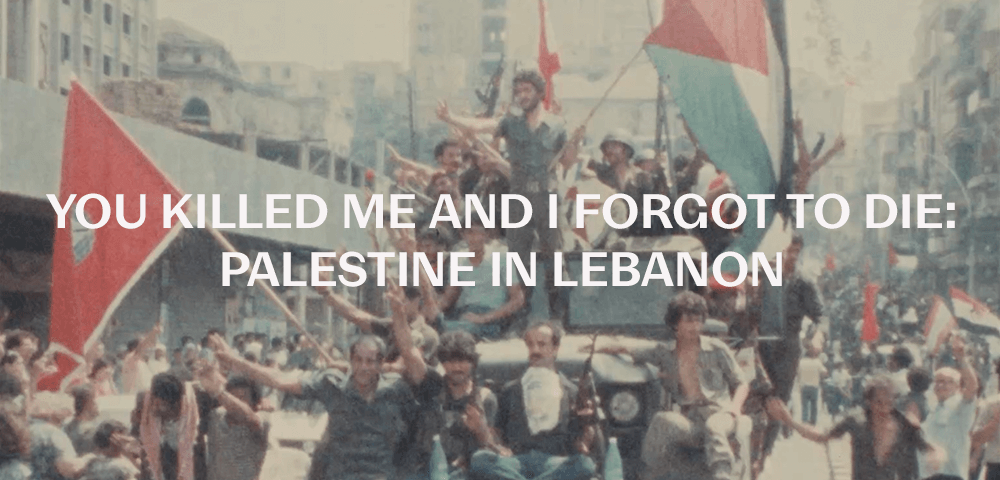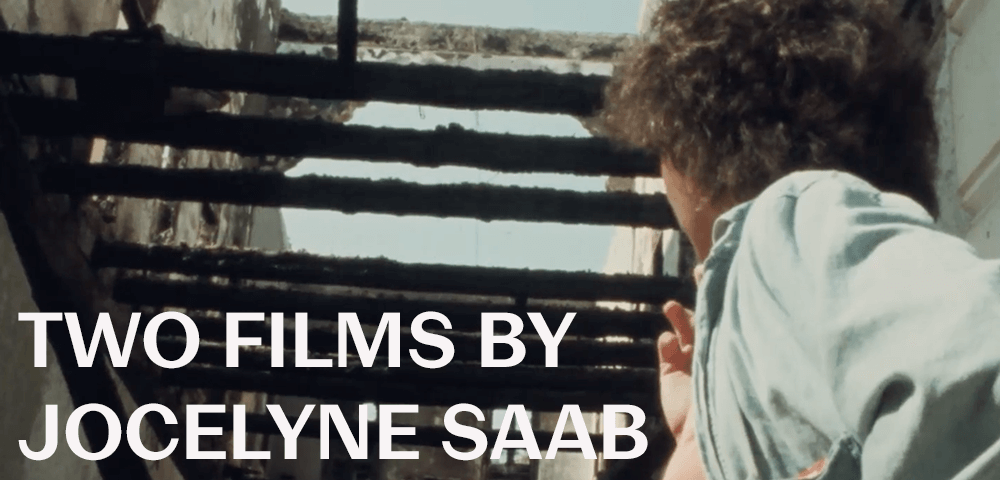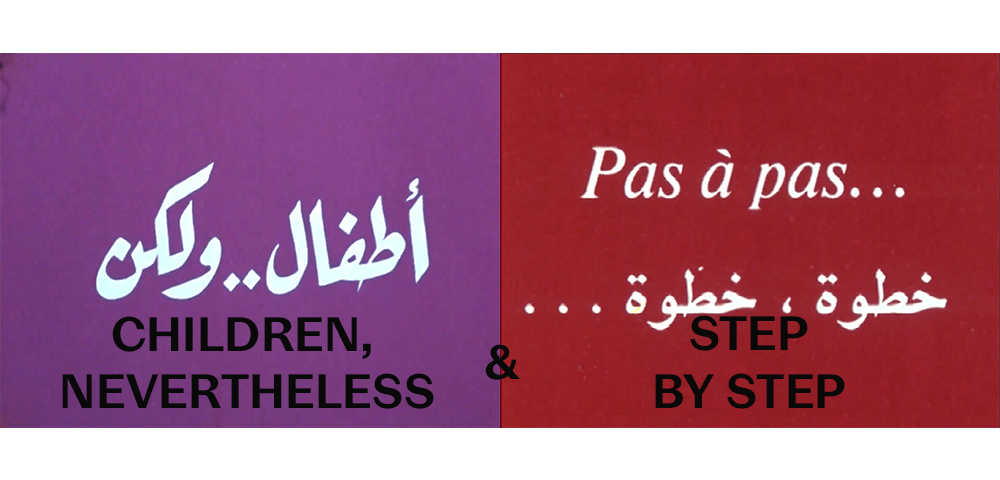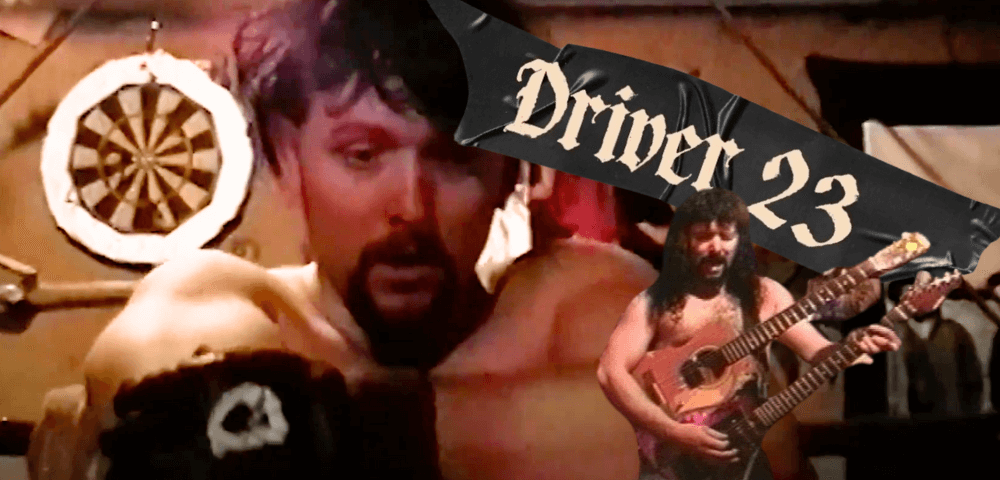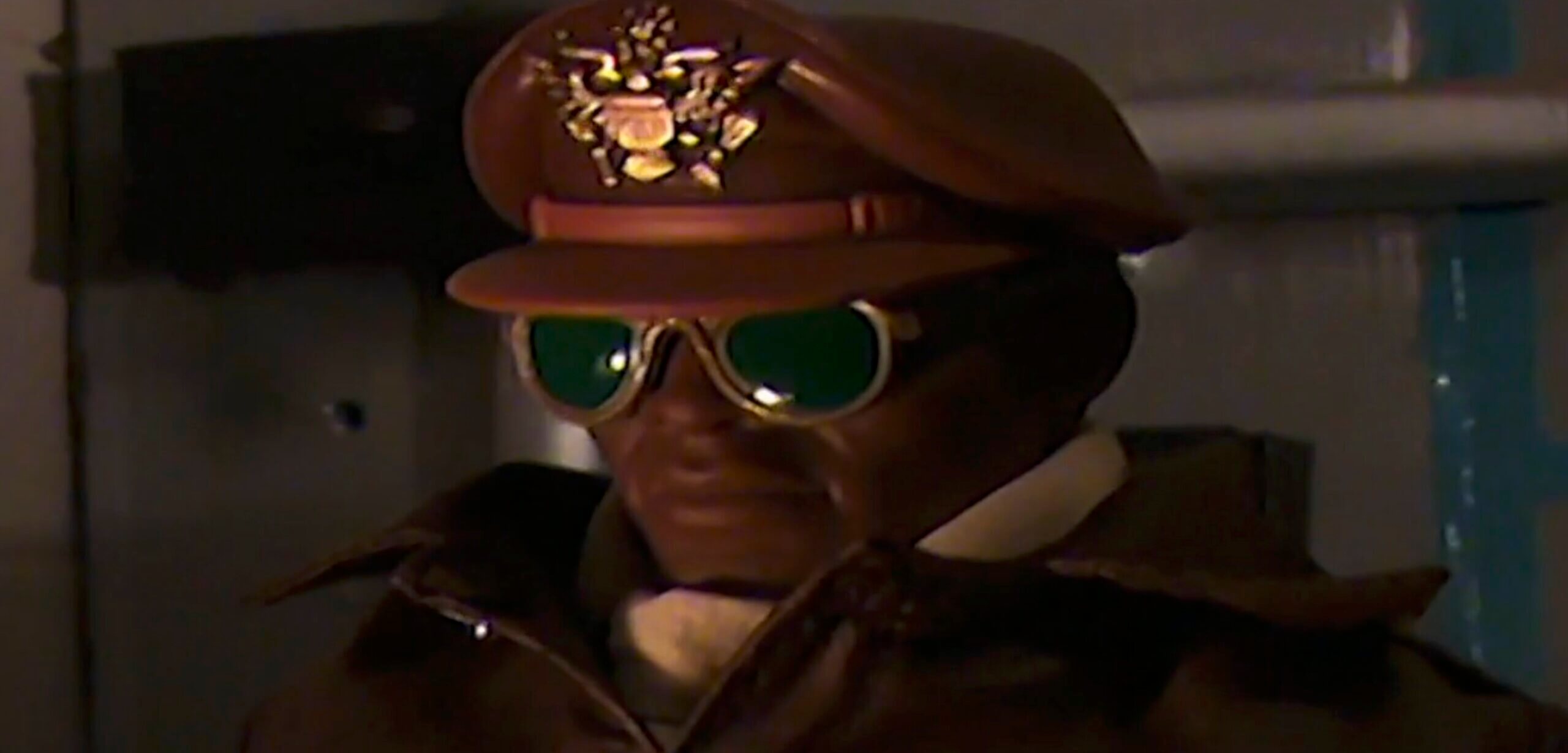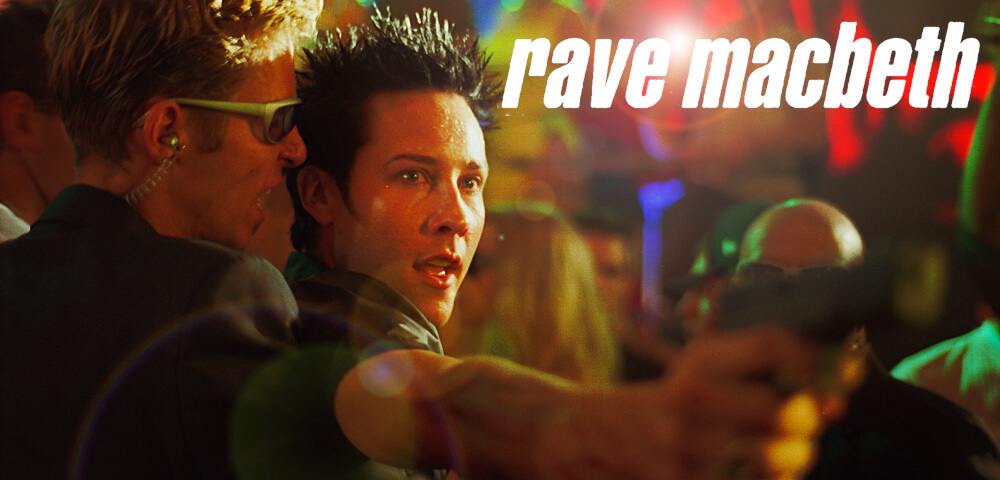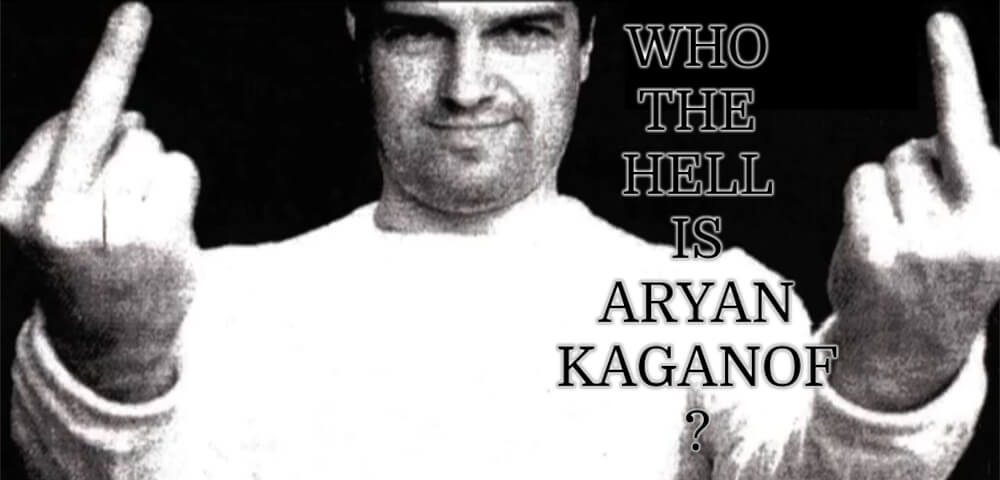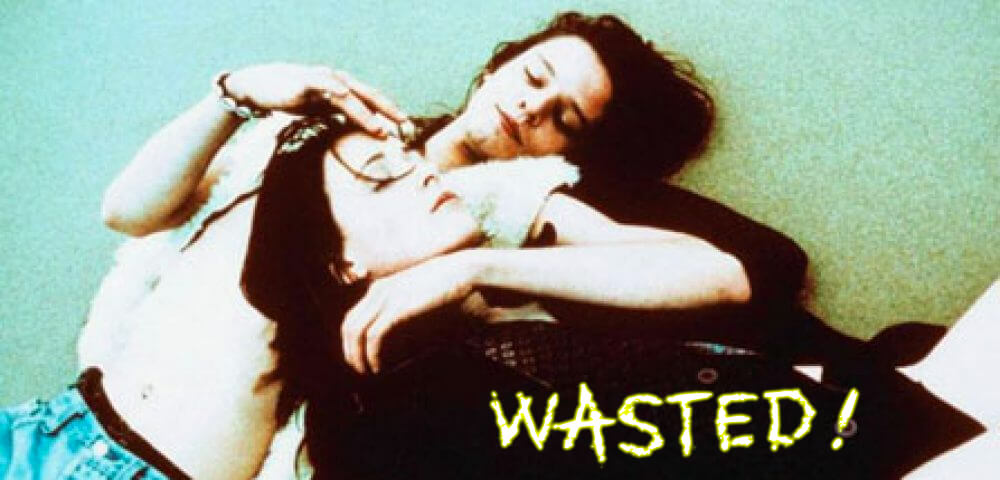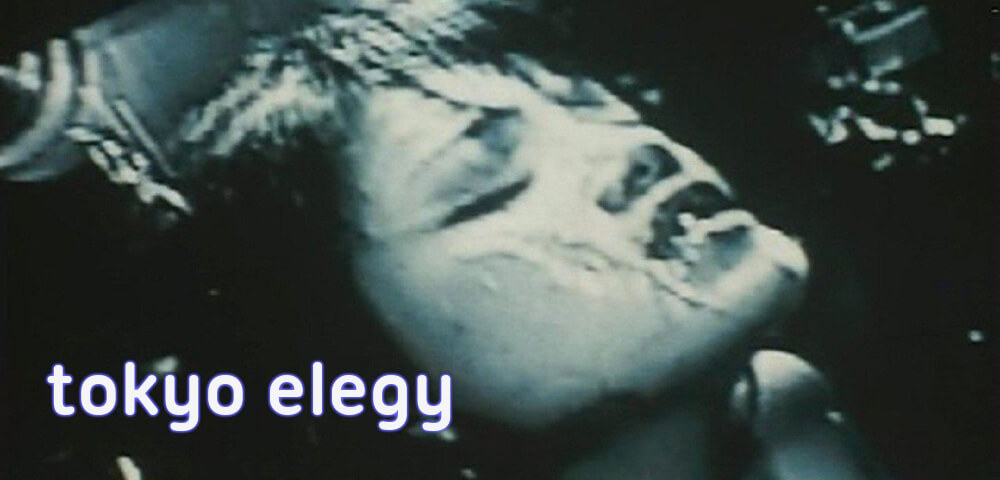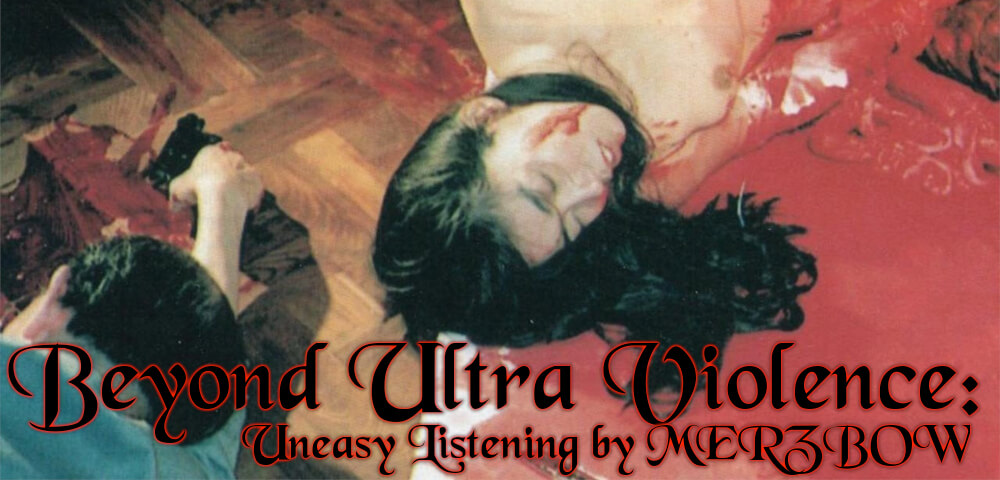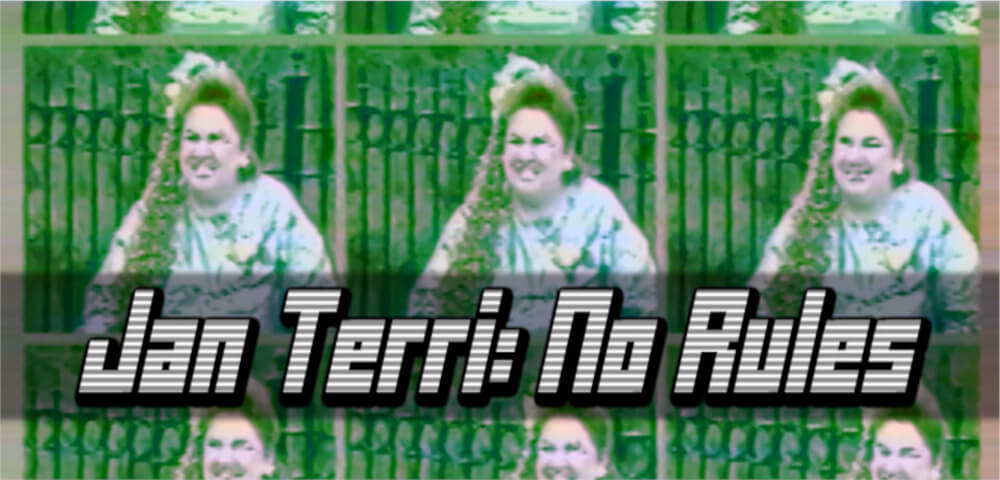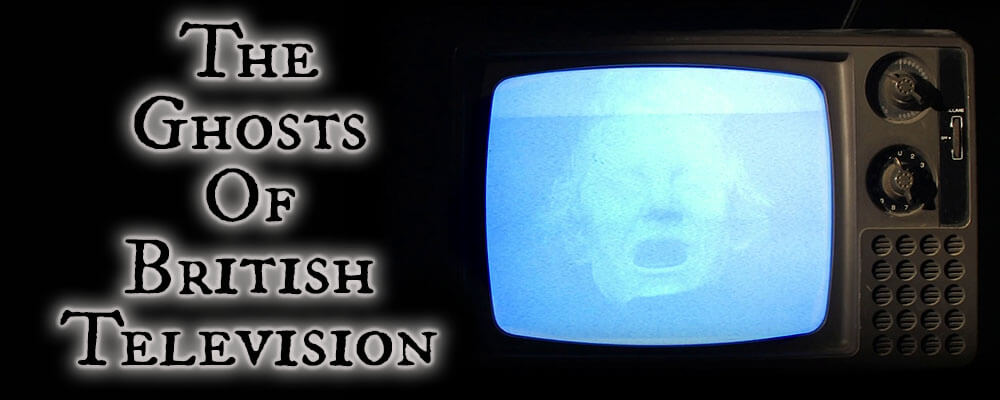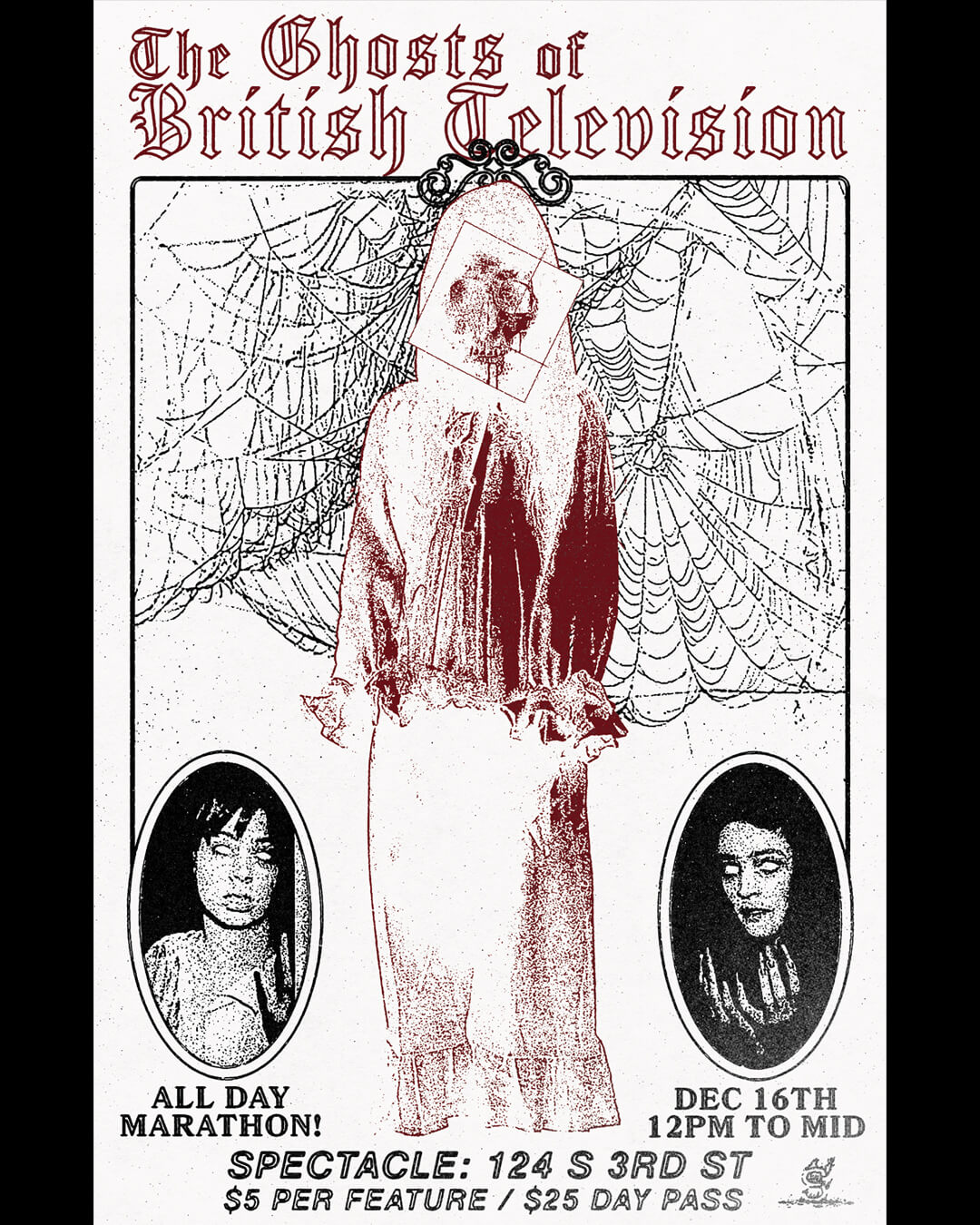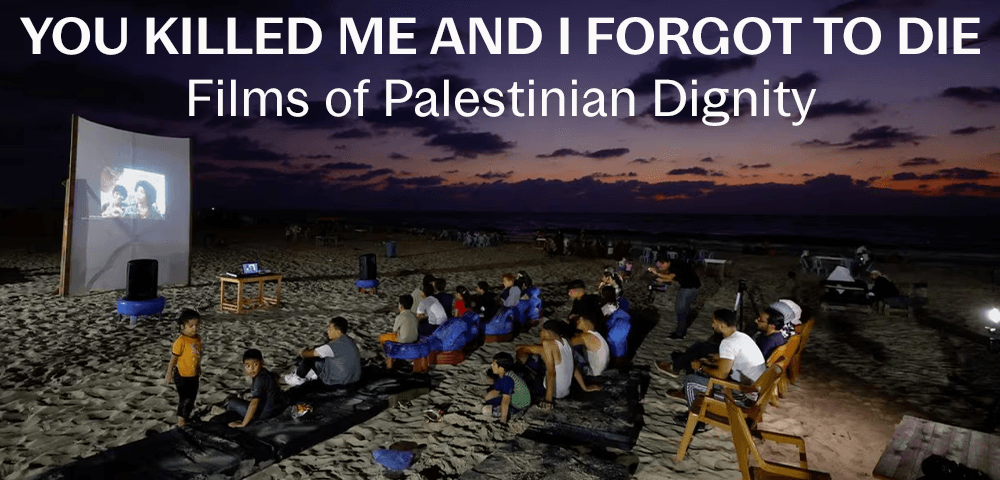
In November, we screened seven films that dug into the long history of Palestine’s struggle for liberation. This December, we will continue this program with a selection of Palestinian fiction and nonfiction films which restage this struggle and the lives and culture of the people who persist alongside it. We hope that these films expand audience engagement with this tragic and pivotal conflict. For those already acquainted with the details of the subject, we hope this series offers an opportunity to have your beliefs reaffirmed or perhaps challenged.
At Spectacle, we pride ourselves on presenting the lost and forgotten, the marginalized, and the obscured. Little has been more (intentionally) obscured than the facts of the blood-soaked history of 20th century Palestine– a history materialized by the politics and apparatus of imperialism, colonialism, capitalism, and various other violent structures of Western hegemony which have turned this sliver of land in the Southern Levant into an unparalleled expression of humanity’s ideological turmoil. The ongoing Israeli bombardment of the region, triggered by Hamas’ attacks on October 7th, must be understood as a continuation of this history. It must also be seen as a reminder that the work of a people’s liberation is the obligation of all humanity, not something that can be compartmentalized or described in isolation.
The history staged in these films is that of a people engaged in a perpetual struggle for liberation from a colonialist project embodied by a regime which offers no quarter to appeals for a peaceful coexistence. As such, Zionism necessitates resistance, the means of which are subject to excessive scrutiny and furious condemnation. Spectacle does not necessarily endorse every sentiment contained within these films. We simply wish to present, in the midst of immense suffering, a selection of the often overlooked Palestinian contribution to cinema as an artform.
“My actions were my contribution to my people, to the struggle… We declared to the whole world that we are a people living through an injustice, and that the world has to help us to reach our goal.” – Leila Khaled
“To us, to liberate our country, to have dignity, to have respect, to have our mere human rights – is something as essential as life itself.” – Ghassan Kanafani
I don’t walk, I fly, I become another,
transfigured. No place and no time. So who am I?
I am no I in ascension’s presence. But I
think to myself: Alone, the prophet Muhammad
spoke classical Arabic. “And then what?”
Then what? A woman soldier shouted:
Is that you again? Didn’t I kill you?
I said: You killed me … and I forgot, like you, to die.
–In Jerusalem, Mahmoud Darwish
-all proceeds to benefit relief efforts-
From The River To The Sea // Solidarity Forever // Spectacle 2023
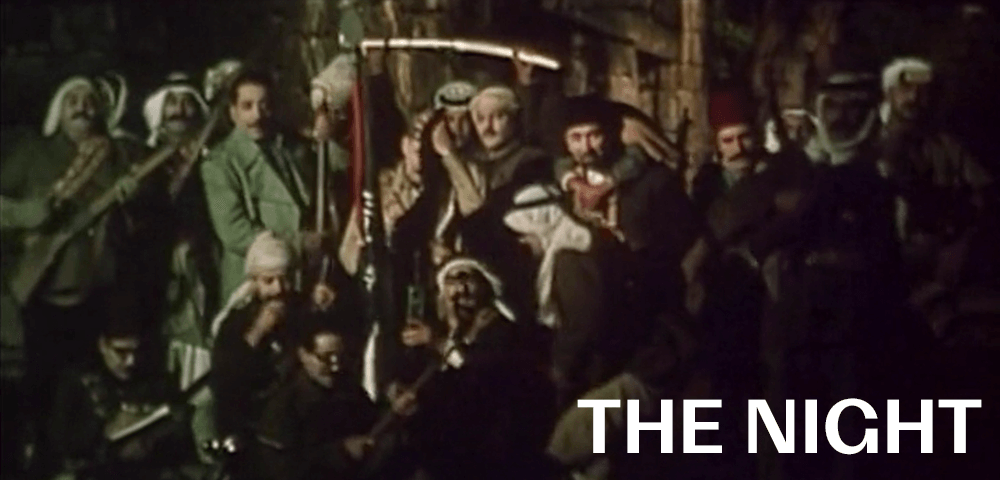
THE NIGHT
(الليل)
dir. Mohammad Malas, 1992
Syria. 116 min.
In Arabic with English Subtitles
WEDNESDAY, DECEMBER 6 – 7:30pm
SATURDAY, DECEMBER 23 – 7:30pm
TICKETS HERE
FRIDAY, DECEMBER 15 – 7:00pm w Q+A (this event is $10)
TICKETS HERE
In November, Spectacle screened Mohommad Malas’ short lyrical documentary The Dream (1987). Now, we present one of his subsequent feature films, The Night (1992). Set in the village of Quneitra in the years between the Great Revolt of 1936 and the Arab–Israeli War of 1948, Malas cites Tarkovsky’s Mirror, Bergman’s Wild Strawberries, and Kurosawa’s Babarossa as references for this abstract narrative about a son who visits the resting place of his father, an old Syrian resistance fighter.
Malas explains that the film “revolves around the idea of a lost place, and covers the decade of the 1930s, when the first (of many to come) coup d’état took place and the military junta behind it consolidated power. This ended a nascent civilian rule and set a precedent that would be repeated many times thereafter, with one military coup after another conditioning the country into becoming prey for the Israeli forces that arrived in 1967, occupied the Golan Heights, and destroyed my ancestral home, the lost place, of Quneitra.”
Film scholar Samirah Alkassim, who will be joining us for a remote Q&A after the December 15 screening, describes The Night as “a puzzle with a composite protagonist fused between the characters of the mother, son, and father. The real protagonist, however, is the process of memory configured through the overlapping recollections between a son and mother of the father who died mysteriously in the expropriation of their city, Quneitra. It is as if the characters are in a loop, sifting through fragments of the past to reassemble the picture and find themselves again.”
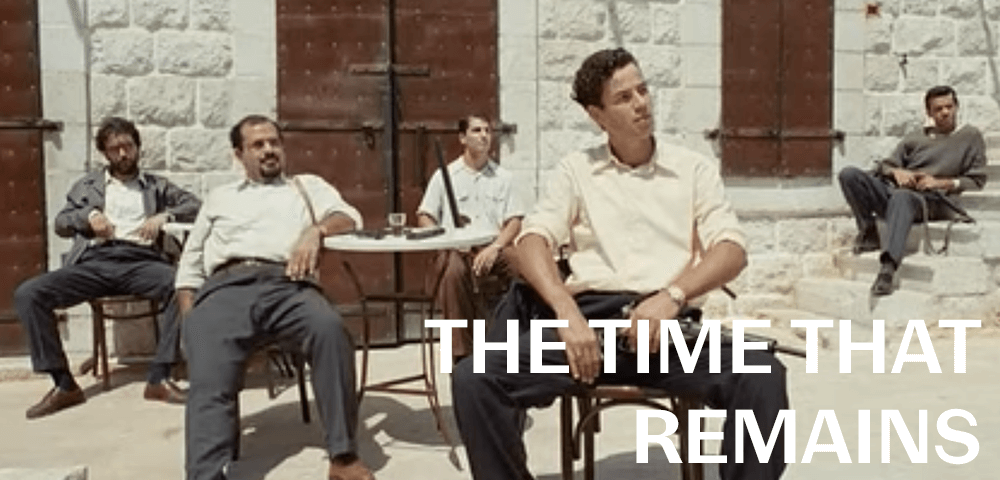
THE TIME THAT REMAINS
( فيلم الزمن الباقي كامل )
dir. Elia Suleiman, 2009
France/Belgium/Italy/UK/UAE/Palestine/Israel. 109 min.
In Arabic and Hebrew, with English subtitles.
MONDAY, DECEMBER 4 – 7:30pm
WEDNESDAY, DECEMBER 13 – 7:30pm
FRIDAY, DECEMBER 22 – 5pm
TICKETS HERE
Elia Suleiman’s semi-autobiographical film is, per the director’s own words, “a family portrait and a social portrait” of Palestinian life in the decades following the Arab-Israeli war of 1948. The film casually mounts its drama as a succession of anecdotes which gather into gently traced narrative strands that detail the history of a family and their neighbors living through the second half of a century of tumult. Suleiman, who appears, wordlessly, in the latter half of the film, has often seen his films compared to those of Jacques Tati and Buster Keaton. The comparisons are apt, as his mild-mannered presence, ordered mise-en-scene, and laconic realism pull forth the blackly-comic absurdity of life under occupation.
Suleiman has referred to his presence in the film as a sort of “wingless angel” offering a neutralized gaze, but this is not to say the film is without deep currents of melancholy or anger. These feelings are profoundly present, evinced through the exhausting accumulation of injustice and violence, staged upon a landscape of such striking beauty that it can be difficult to imagine it could sustain such suffering.
Early in the film, a Palestinian man standing before a brigade of Israeli soldiers, concedes his life to his dignity. Before putting the gun to his head, he proclaims:
“I want no life if we’re not respected in our land. If our words are not heard echoing around the world, I shall carry my soul in my palm, tossing it into the cavern of death. Either a life to gladden the hearts of friends, or a death to torture the hearts of foes.”
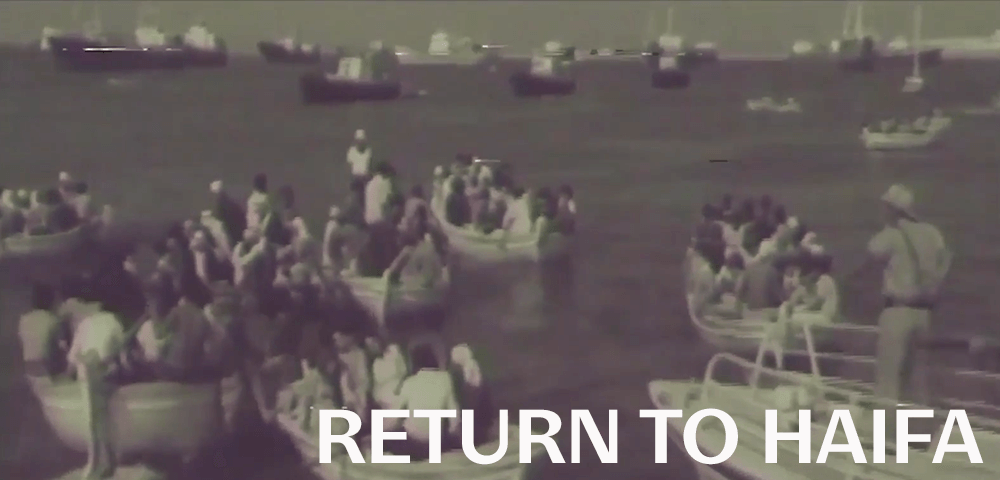
RETURN TO HAIFA
( عائد الى حيفا )
Dir. by Kassem Hawal, 1982
Lebanon. 75 min.
In Arabic, English, German w/ English subtitles.
TUESDAY, DECEMBER 5 – 10pm
TUESDAY, DECEMBER 19 – 7:30pm
SATURDAY, DECEMBER 23 – 5pm
TICKETS HERE
Based on Ghassan Kanafani’s eponymous 1969 novella, Return to Haifa takes place in 1967 during the Six-Day War when Palestinian refugees had an opportunity to visit the places from which they had been expelled during the 1948 Nakba. Sa’id and Safiyya, a Palestinian couple living in Ramallah, return to their home for the first time. Living there now is Miriam, a Holocaust survivor and Jewish Israeli citizen. Not realizing they would be unable to return, Sa’id and Safiyya left behind their infant son who they find has been raised by Miriam. The film depicts the Nakba as not only the tragedy of the Palestinian people but also of the Israeli settlers who cannot escape confronting this past and becoming accountable for it. Who is the father? Who is the mother? What is a homeland?
Iraqi director Kassem Hawal was born in 1940 and studied theater acting and directing at the Institute of Fine Arts in Baghdad. After leaving Iraq in 1970 he traveled to Lebanon and Syria, worked on films for the PLO, and has directed 28 documentaries and five features over his career.
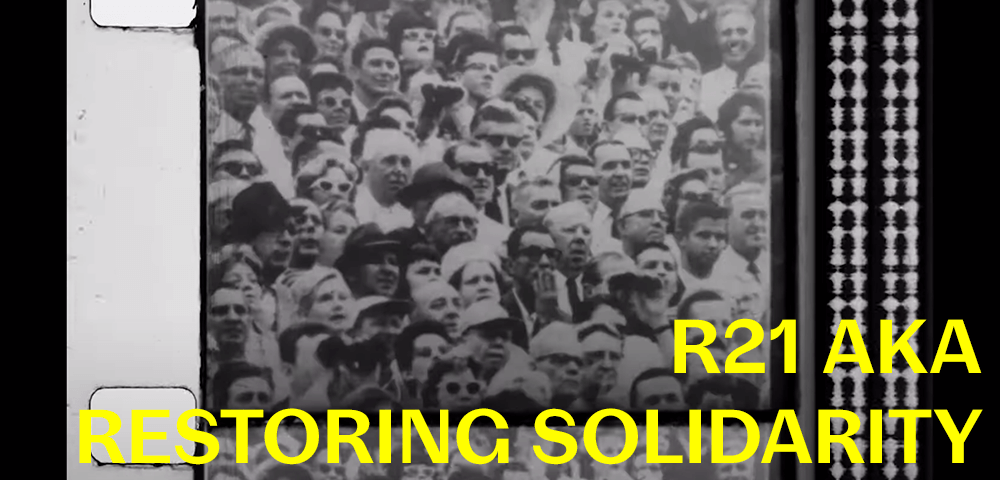
R21 AKA RESTORING SOLIDARITY
dir. Mohanad Yaqubi, 2022
Qatar/Palestine/Belgium. 71 min.
English, Japanese, and Arabic with English Subtitles.
SATURDAY, DECEMBER 2 – 8pm ft Q&A Fadi Abu Nemeh – a scholar based in Montreal who was part of the archival research and film production
Q&A TICKETS HERE
TUESDAY, DECEMBER 12 – 7:30pm
FRIDAY, DECEMBER 22 – 10pm
TICKETS HERE
The growing struggle for Palestinian self-determination between 1960 and 1980 was supported by radical left-wing movements worldwide, including Japan. This is illustrated by a collection of 16mm films by militant filmmakers from various countries, which were dubbed and screened in Japan. Following the events of WWII, Japanese audiences felt oppressed by the US, and not only sympathized but also identified with the Palestinians.
Stylistically, the films vary widely. They include interviews with PLO leaders, documentary impressions of life in refugee camps, experimental films, and instructional films for tourism purposes. Mohanad Yaqubi has drawn on this material to create a film that might be seen as a conclusion or epilogue. He shows how two very different peoples can feel connected through images, and also raises questions. Where is the line between support and propaganda? And to what extent can a local struggle be translated internationally?
-Collective Eye Films
